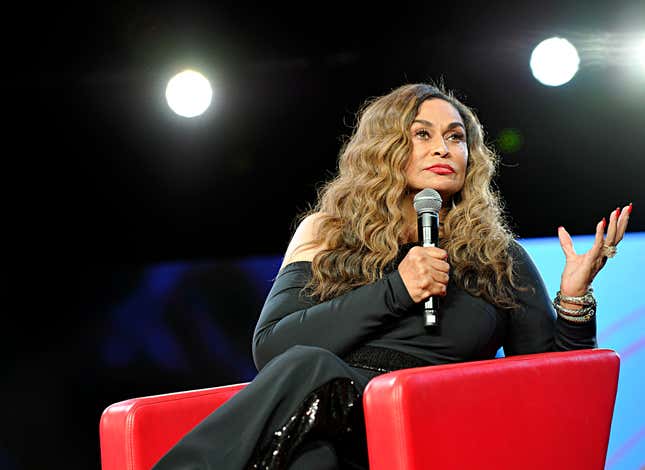
Tina Knowles-Lawson, patron saint of coordinated outfits and mom jokes, struck a serious note on her Instagram the other day as she addressed the potential reopening of non-essential businesses.
“I know I’m going to be very candid. I know I’m probably going to get some flak for this, but I don’t really care,” Knowles-Lawson said in a video post. “I find it very strange that the businesses that were opened were nail salons and hair salons.”
“We as black people love to get our hair done. We love to get our feet done. I would like nothing better than to get my rusty feet done right now, because they’re pretty bad,” the former salon owner—and of course, mother of Beyoncé and Solange—quipped. “But let me tell you what. It’s not worth it, guys. Why would that be the first places that they open?”
Knowles-Lawson urged viewers to stay home, noting how deadly the disease is, particularly for black people, who are dying at much higher rates than white Americans.
“Let’s send a message that we are not dumb, we know what time it is,” the Queen Mother continued, before urging everyone to, once again, stay their asses at home. “Protect your mothers, your grandmothers, your family.”
Ms. Tina was responding to news that certain states were getting ready to start re-opening non-essential businesses soon. Georgia Governor Brian Kemp, in particular, said the state would reopen hair salons, tattoo parlors, gyms and barbershops this week.
Mayors from some of Georgia’s biggest cities, including Atlanta, Augusta, and Savannah, pushed back against the orders, which stand in direct contradiction to data models cited by the White House, CNN reports. According to one of those models, Georgia shouldn’t begin to reopen until June 22. Reopening these businesses would only extend the severity and impact of the crisis, and the economic benefits are limited—large numbers of Americans also say they’d be reluctant to go back to public places so soon.
As Knowles-Lawson points out, the workforces and clientele of nail salons and hair shops can be deeply segregated. Nail techs are disproportionately women and immigrants, with little in the way of workplace protections. And the amount of time, care, and attention that black hair requires can mean a disproportionate amount of time spent grooming and maintaining it, as opposed to straighter, finer, more “wash-and-go” hair. One 2018 study found that black consumers spent nine times more on hair and beauty than non-black clients.
Knowles-Lawson’s concern is well placed based on these facts alone, but she is also mourning the loss of one her best friends, Shelia Campbell Christian, who died from COVID complications. Campbell Christian worked as a nurse. Knowles-Lawson recently paid tribute to her on her Instagram, remembering her former roommate as “so beautiful, so kind.”
“These healthcare workers are dying of this disease,” she implored. “Please take it seriously and stay home if you can.”

